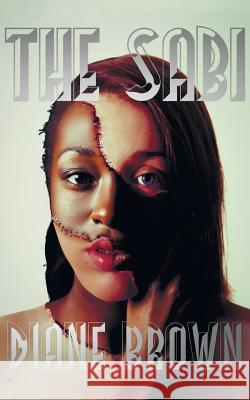The Sabi » książka
The Sabi
ISBN-13: 9781909740846 / Angielski / Miękka / 2013 / 254 str.
She does not know how, but has a sabi from her earliest memory that she was different. What she does know is that 'difference' had currency in the past, and it certainly still has currency today. The Sabi will have an effect on you - have no doubt about that. In her debut novel, Diane Brown takes a scenic and open-eyed walk down memory lane to the 1960's when apartheid was in full swing to the early 1990's when South Africa was beginning to sense freedom. She ventures further back in time to help solve the puzzle of the current time, how did South Africa become so angry and so violent? Writing from the heart to relate the events of her childhood and adolescence, the author takes you on a journey that will make you cry and laugh along with her as she tried to make sense of her life, the people around her and the system into which she was born. She is no doubt left extremely vulnerable and exposed in relating this account of her life. This honesty is anchored in an easy writing style which is deeply reflective, with an acute sense of contextual reasoning. She reflects on the news of the day in a 'free' country, tainted with the heavy stench of death, violence and abuse and notes that all too familiar script. She finally realises... Her story must be told.
She does not know how, but has a sabi from her earliest memory that she was different. What she does know is that difference had currency in the past, and it certainly still has currency today.The Sabi will have an effect on you - have no doubt about that.In her debut novel, Diane Brown takes a scenic and open-eyed walk down memory lane to the 1960s when apartheid was in full swing to the early 1990s when South Africa was beginning to sense freedom. She ventures further back in time to help solve the puzzle of the current time, how did South Africa become so angry and so violent?Writing from the heart to relate the events of her childhood and adolescence, the author takes you on a journey that will make you cry and laugh along with her as she tried to make sense of her life, the people around her and the system into which she was born. She is no doubt left extremely vulnerable and exposed in relating this account of her life. This honesty is anchored in an easy writing style which is deeply reflective, with an acute sense of contextual reasoning. She reflects on the news of the day in a free country, tainted with the heavy stench of death, violence and abuse and notes that all too familiar script. She finally realises...Her story must be told.











